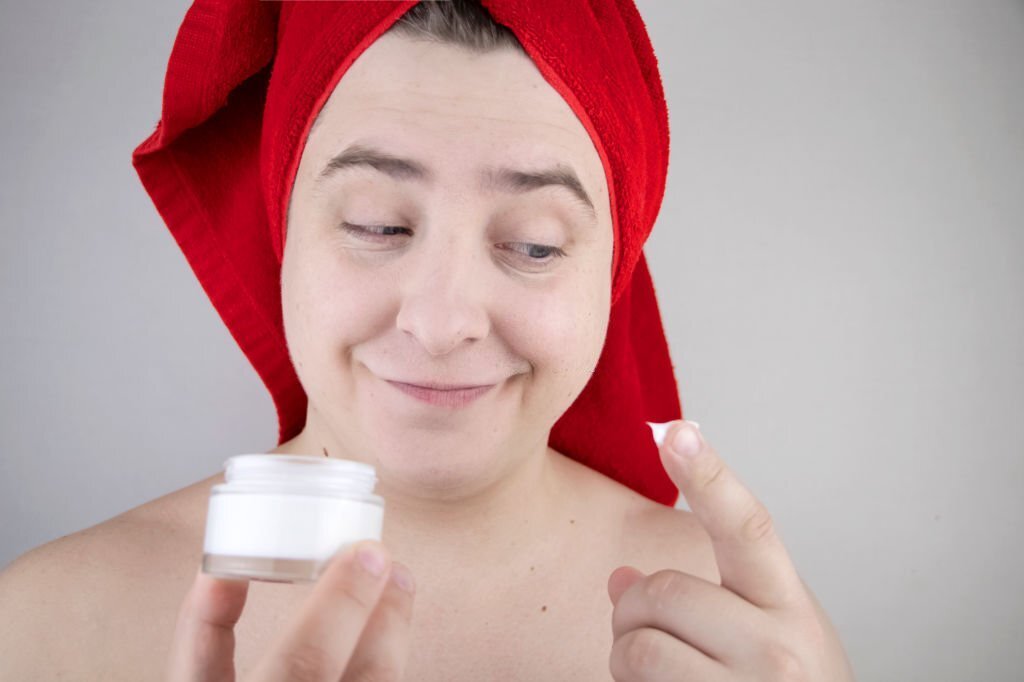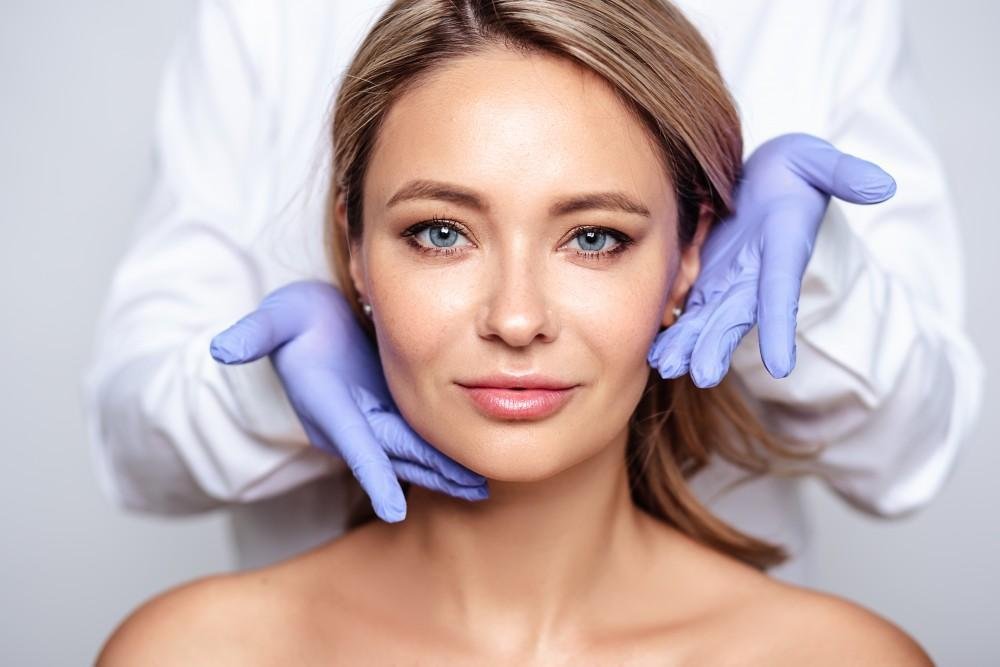
“If you’re looking for a solution to Rosacea, Finger Lakes Dermatology has got you covered! We specialize in diagnosing and treating Rosacea, as well as offering the latest technology for treatments. We understand that managing Rosacea can be difficult, but with our experienced team, we can help you find the best solution for your skin. In this blog post, we’ll discuss the diagnosis and treatment of Rosacea, as well as provide you with some skincare tips to help manage your symptoms.”
Read More Article: Dr. Brad Yentzer Dermatology
Rosacea Diagnosis And Treatment
Rosacea is a common skin condition affecting millions worldwide. Finger Lakes Dermatology PLLC provides solutions for those with this chronic disorder. Rosacea appears as redness and flushing on the face and can also cause bumps or pimples. Symptoms include burning or stinging sensations, swelling, visible blood vessels, dry skin patches, and small pus-filled bumps. Diagnosis is based on skin appearance, pattern, and timing of symptoms. Treatment options include medications, dietary and lifestyle changes, laser treatments, and managing emotional responses to flare-ups. Finger Lakes Dermatology PLLC offers expert care for all dermatological conditions with specialized services tailored to meet each patient’s needs.
The Latest Technology For Rosacea Treatments
Do you suffer from rosacea? If so, you’re not alone—16 million Americans also share its symptoms, including patchy pink spots and all-over facial redness. At Finger Lakes Dermatology, we understand the challenges of managing rosacea and provide our patients with the latest technology to treat this condition.
The first step to managing rosacea is to understand and diagnose it. Facial mapping is one way to diagnose Erythematotelangiectatic Rosacea (ETR), which is caused by a combination of factors, including genetics, environmental exposure, and skin microbiome. Once we have confirmed your diagnosis, our knowledgeable team can discuss holistic approaches to treatment with you, including lifestyle changes and professional skincare recommendations.
At Finger Lakes Dermatology, we offer laser and light therapy solutions that have been proven effective in reducing the redness associated with ETR. In addition to these treatments, we also offer oral and topical medications, as well as injections for acne treatment when needed. We can also perform procedures for facial disfigurement or redness reduction if necessary.
Four newer FDA-approved topical treatments for rosacea include brimonidine (2013), ivermectin (2014), oxymetazoline (2015), and minocycline (2016). Brimonidine was specifically approved to treat persistent facial redness associated with rosacea. Recent research suggests a correlation between serum immunoreactivity to Demodex-associated Bacillus proteins and ETR; however, further studies must be done to confirm this link definitively.
At Finger Lakes Dermatology, we take pride in providing comprehensive care tailored specifically to help our patients manage their symptoms of rosacea safely and effectively using the latest technology available on the market today!
Skin Care Tips To Manage Rosacea Symptoms
Do you suffer from Rosacea? If yes, this post is for you. Finger Lakes Dermatology sympathizes with the difficulties of managing Rosacea, so we will provide you with tips on managing your symptoms.
Rosacea is a chronic skin condition that can cause redness, bumps, and irritation on the face. It can range from mild to severe in severity and can affect people of all ages. Erythematotelangiectatic (ETR), Papulopustular (PPR), Phymatous (PHY), or Ocular rosacea (OC) are some of the different types of Rosacea that require different treatments. However, the goal is always the same: reduce symptoms and maintain healthy skin.
The first step in managing Rosacea symptoms is to make changes at home. Sun exposure can worsen Rosacea flare-ups, so it’s important to wear sunscreen with an SPF of 30 or higher when going outside for extended periods. Additionally, avoid heat and stress, which are common triggers for flare-ups. To keep your skin hydrated, use a moisturizer that contains SPF and ceramides. Avoid alcohol-based products and fragrances that may irritate sensitive skin.
Making dietary changes such as limiting alcohol consumption or cutting out spicy foods may also help reduce symptoms since these items are known triggers for some people with Rosacea. Additionally, incorporating facial treatments such as a pink clay mask 1-2 times per week may help limit or prevent flare-ups while adding moisture back into your skin, which helps keep it healthy overall.
Finally, there are FDA-approved topical medications such as azelaic acid, ivermectin, and metronidazole available that can help reduce redness, inflammation, papules, and pustules associated with Rosacea. However, if over-the-counter products aren’t effective enough for more severe cases, consulting our team here at Finger Lakes Dermatology about prescription medication options is another solution. Our team will work closely with each patient to develop a personalized treatment plan tailored specifically to their individual needs.
In conclusion, although managing Rosacea isn’t easy, by following these simple tips, taking control of your healthcare journey, and consulting professionals when needed, you should see positive results soon!
Must Read Article: What To Expect During Your First Visit To Finger Lakes Dermatology
The Best Ways To Relax And Reduce Stress To Help Rosacea
Rosacea is a skin condition that can cause redness, flushing, and bumps on the face. Although it can be difficult to manage, there are ways to reduce stress and relax that can help with symptoms. At Finger Lakes Dermatology, we understand the relationship between stress and skin problems such as rosacea, and in this blog post, we’ll cover the importance of understanding emotional health for managing rosacea, relaxation techniques for treating symptoms, lifestyle tips for reducing stress levels, and treatment options available through our office.
Stress has a huge impact on our emotional health, which in turn affects our physical well-being, including skin issues such as rosacea flare-ups. To start managing your symptoms, it’s important to know how to relax and reduce stress levels in order to maintain a healthy emotional balance. Relaxation techniques, such as mindfulness meditation or yoga, are excellent tools for both physical and mental well-being. They provide an avenue of release from daily pressures, which helps reduce anxiety levels that can contribute to skin irritations associated with rosacea. Additionally, developing a mindful lifestyle with organic vegetables or fruits containing anti-inflammatory compounds helps rebuild healthy cells in the body, leading to improved overall health, including skin issues like rosacea-related redness or bumps on the face caused by sensitivity.
Vascular lasers may also help reduce redness associated with rosacea, while pulsed dye laser treatments (PDL) are one of the most popular treatments used today because they target blood vessels beneath the surface of your skin responsible for causing flushes or flare-ups. However, these treatments can be expensive, since insurance does not typically cover them, so multiple sessions may be necessary before results begin showing.
Finally, cold compressions using ice cubes or an ice-cold bottle of water pressed against your face during an oncoming flush episode are said to provide relief from its intense heat, allowing you time before it fully forms into a full-blown outbreak without having to use any topical creams that could lead further irritation due to sensitivities often associated with this condition. All these methods combined may help bring you closer to finding effective solutions when living life with rosacea. So, visit us at Finger Lakes Dermatology today!
Bottom Line
Rosacea can be a challenging condition to manage, but Finger Lakes Dermatology can assist you in finding the best skin solution. Our skilled team can provide comprehensive care tailored specifically to meet the needs of each patient, including diagnosis, treatment, lifestyle changes, and professional skincare recommendations. Don’t allow Rosacea to control your life any longer – take control today by calling us and scheduling an appointment!












